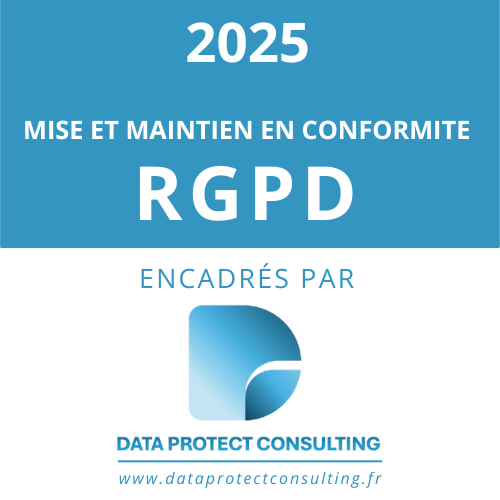Individual training for aspiring Medical Writers
Azur Health Science is all about people. We care as much about training and equipping the next generation of medical writers as we care about the patients for whom we write.
For this reason, we offer an individual training scheme for people who are looking to break into the field.
We know that the competition is tough and that contact and experience in the industry are priceless when getting to the interview, convincing potential employers and signing that first contract.
Possessing a combined 20 years’ experience in regulatory Medical Writing and being active members of the European Medical Writers Association, we are ideally placed to guide you into this challenging but rewarding field.
Mentoring individuals, valuing differences
Frequently asked questions
The art of visual facilitation involves helping groups and teams enhance their thinking and decision-making performance beyond the norm. The facilitator starts with unfinished drawings that are completed in collaboration with the participants. The combination of shapes and words is sometimes more powerful than the isolate use of them alone. The aim is to motivate participants to get a grip on the material in a manner that is almost playful. With the right people and right questions, a culture of dialogue will ultimately yield compelling results.
Patient’s voice is gaining attention in the field of research, and partly because of this, the use of infographics to facilitate better understanding has become an ubiquitous practice used in different arenas. Their visual and narrative elements, including text, images, and data visualizations, help convey complex information in a more digestible and understandable way. We would love to leverage our creative side with the ultimate goal of making information more accessible to the general public.
Effective website content is vital when looking to attract visitors, build awareness, and promote loyalty. It is more than just great informative content; it also has to be persuasive and educational, creating a seamless user journey that pushes brand growth and success. The nuances of medical writing can be quite technical, and we would welcome the opportunity to help you with any project that you face.
A blog post is an individual entry (article) published on a website’s blog section that dives into particular sub-topics, regularly published to add a touch of dynamism and continue to attract new readers. The audience appreciates high-quality content that educates without being tedious, and always brings something new to the table. Building that digital footprint comes with rigor and credibility. That is why having professional medical writers to back up each entry of your blog is essential, ensuring tailored content that mirrors your blog’s personality.
A webinar functions as an online seminar, whose main appeal is the live interaction between the speaker and the audience. Similar to face-to-face meetings, webinars facilitate interactive features such as live Q&A sessions, survey responses, and discussions without the need to physically travel. To achieve a satisfactory result, we will assist you from planning to final execution, helping you strengthen relationships with your audience and position yourself as an expert in the field.
A podcast is similar to a radio program but with some extra juicy ingredients. Offered as a series of digital spoken-word audio episodes, the contents are accessible anytime, anywhere, either online or downloaded to a personal device. They span a wide range of topics, which are often discussed by experts in the field. To maximize engagement and reach, it is important to frame the themes and establish a consistent format. Our experienced team of medical writers is ready to support you on this journey by providing informed, high-quality material tailored to your goals.
Scientific posters are the calling cards used to disseminate the research findings at meetings and conferences. A winning poster should nail the message, make it stand out, and communicate the key points quickly. To achieve this, we do not just stick some data on a board; we work closely with our clients to clearly convey their message and turn it into something that really gets people talking.
Online training is an ideal resource, offering the opportunity to reach a wide audience, available whenever and wherever needed. A good management is essential to deliver structured, effective, and interactive training, if necessary, allowing the audience to understand and apply the information in real-life situations. Whether they are healthcare professionals, general public, or other stakeholders, we will ensure these resources are smoothly implemented and efficiently managed.
The use of plain language is the remedy for overcoming one of the biggest barriers in healthcare communication: namely over reliance on jargon and expert knowledge. From reading an informational brochure to the results of a large clinical study, the use of uncomplicated language helps to bring the information closer to the general public, without overlooking the essential details. We will be eager to assist you in bridging that divide, regardless of the complexity of your initial document, we will ultimately prioritise health literacy.
Variations are usually required when the company wish to update or modify an existing aspect of an already authorised product, avoiding the process of a new application. This may involve changes to the terms of its labelling, formulation, or indication. A supplement, on the other hand, seeks to add a new specification, for example, an extended use of the product, expanding its market, etc. We navigate the scientific and regulatory complexities to ensure that changes are well justified and the impact on the final benefit-risk balance of the product is clearly communicated.
Annual reassessments are prepared by pharmaceutical companies to conduct an annual evaluation of the product performance. They usually report the overall product’s status (including efficacy, safety, and market performance developments), which ensures the product remains compliant with regulatory standards. These documents require the tracking of a wide range of data from different sources. For this reason, we strive to provide a cohesive and synthesise document, ensuring that all key aspects are thoroughly evaluated and communicated.
The PBRER provides a comprehensive and critical analysis of the overall benefit-risk balance of a medicinal product, updated periodically post-authorisation. Unlike PSURs, they must address not only the safety but also the efficacy and effectiveness of the product, which helps to evaluate whether the therapeutic benefits of the product continue to outweigh the risks. The medical writer’s role is essential when planning and managing the submission, ensuring consistency across different sections but also with other pharmacovigilance documents.
PSURs are pharmacovigilance documents aimed to update the benefit-risk balance of a medicinal product after its authorisation. These periodic assessments must include any new information on the safety profile of the product in order to identify new or emergent risks, potential shifts in the balance, and measures to be taken. Writing a PSUR can be challenging, as it requires a critical thorough analysis of large volumes of safety data. We strive to provide timely and compliant deliverables that help identify any potential safety signal.
These regulatory documents are aimed to support the interaction with regulatory authorities (EMA or FDA), which helps to smooth the overall process. They are often prepared for pre-submission meetings, request for scientific advice or even protocol assistance. These interactions can influence the clinical development of a product and are therefore critical to companies. From our side, it is essential to deliver documents that are clear and concise, presenting the points of discussion in a direct and accessible manner.
Within the marketing application process, Integrated Summaries are key documents that combine and analyse data from different studies, grouped into safety, efficacy and immunogenicity summaries. Inherently, they must have a solid statistical basis, which will help regulators gain a well-rounded picture of the medicine’s benefit-risk profile. It is key for us to produce documents that are consistent across multiple studies and traceable to their sources, while maintaining a clear and compelling narrative.
Requests for accelerated assessment are addressed to the European Medicines Agency (EMA) to request an accelerated review of a medicine’s marketing application, particularly indicated for medicines that may have a significant benefit to the public or fill an unmet need. They must be convincing and clearly highlight the importance and advantages over other existing therapies. With a strategic focus, we will strive to deliver well-structured documents with clear arguments that help authorities quickly assess the relevance to public health.
PIPs/PSPs aim to describe in detail the research plan that will be carried out to evaluate the suitability of the investigational product in the paediatric population. They must ensure that sufficient data will be obtained to support their authorisation in children. In such a vulnerable population, it is crucial to align the intended objectives and expectations with the practical aspects of clinical development. With our experience, we will ensure that any potential issues that may arise are handled smoothly to achieve a comprehensive and successful application.
Orphan drug designation is a special status that sponsors can seek when developing a medicinal product to prevent, diagnose or treat a rare disease, a condition that affects a small number of patients. This designation confers significant incentives to sponsors, a strategic way to promote the development and marketing of drugs for rare conditions. Applications can be challenging since data is often scarce and studies usually deal with a heterogeneous population. With our experience, we will tackle these complexities and join forces not only in the application process but also in the maintenance of the subsequent periodic reports.
Pharmaceutical companies may decide to launch/market their products in foreign markets, but to do so, they need to adhere to country-specific clinical and regulatory documents. As a result, it is essential to know how to navigate these complexities in order to streamline the submission process for different worldwide markets. We will support you every step of the way to achieve a compliant and successful global regulatory application.
Responses to written request refer to a document or group of documents created in response to a formal request from regulatory agencies, such as the FDA or EMA, which may solicit further information about the investigational product. These requests might take many forms, such as clarifications, additional data, or follow-up details not included in the original submission. Whatever the request, we will work together to provide tailored responses to satisfy authorities’ requests in a clear and substantive manner.
Regulatory bodies often require revisions or additional data during the approval review stage. These responses are critical to keeping the process on track and moving toward the final authorisation/goal/resolution. That’s why we take care to provide clear responses in a timely and tailored manner for a successful submission process.
These regulatory documents describe how the safety of a medicinal product will be managed and monitored post-authorisation. These plans are essential for preventing and minimising risks in patients and evaluating the effectiveness of the measures taken. As new information becomes available throughout the drug’s lifetime, RMPs/REMS are continually modified and updated. We will adopt a strategic approach in order to provide clear, robust risk documents that anticipate the expectations of regulators authorities.
Clinical Summaries present a comprehensive and factual summarisation of all the clinical information in the Common Technical Document (CTD). Each summary focuses on a specific area and, taken together, they help regulatory authorities to assess how the medicine works, how it is absorbed, how safe it is, and its effectiveness in patients. Therefore, drafting these documents involves synthesizing large amounts of data into focused deliverables. It is paramount for us to provide documents of the highest standard that fully meet these requirements, while maintaining the accuracy of results and consistency across sections.
Clinical Overviews provide an exhaustive and critical analysis of the clinical data, submitted as part of the Common Technical Document (CTD). Its objective is to present the overall clinical findings and implications of the results, highlighting their strengths and limitations, so that regulators can gain a quick overview of the clinical landscape. We will bring our expertise to critically evaluate and integrate the findings from multiple studies, ensuring a well-founded and compelling submission.
Post-authorisation studies are conducted after the medicinal product has been authorised in order to obtain more information about its safety, efficacy and overall benefit-risk profile in a real-world scenario, beyond the controlled environment of a clinical trial. Due to their nature, it often implies dealing with large datasets from different sources, so it is core for us to distill that information to produce well-organized and clear documents, while adhering to regulatory standards.
Plain Language Summaries are relatively short documents written in non-technical language explaining the results of a clinical trial. In this way, a non-specialist audience, especially patients and the general public, can easily understand what the study was about, what was found, and what it means. We take special care to achieve a delicate balance between accuracy and accessibility when translating complex scientific data into uncomplicated language, avoiding oversimplification or introduction of bias.
Patient Narratives are concise summaries of particular events that individual patients experience during a clinical trial. These personal stories should offer an in-depth look at the patient’s clinical history of adverse events, integrating all available medical and safety-relevant information. We strive to provide comprehensive yet straightforward narratives, describing what happened in a consistent and logical order.
A CSR Addendum is a document that updates or adds new information to an existing CSR. It might be needed when new findings are made after submission of the original report or if additional data need to be included, this guarantees the CSR is complete and up-to-date. Our priority is to clearly present the new information and ensure it fits seamlessly with the original report.
A Clinical Study Report is a full, integrated report of the efficacy and safety results of a clinical trial. As the main communication tool to the competent authorities, it should address all aspects of the clinical trial, from study design to data collected and conclusions drawn, giving a complete picture of the study’s results like a finished puzzle. We will bring value by ensuring the results are both accurate and straightforward, facilitating regulatory authorities to evaluate the study’s outcomes and derive well-informed decisions based on the findings.
General Investigation Plans offer a high-level view of the clinical trial, defining the study’s goals to achieve, the way it will be carried out, and the resources needed for that. It ensures the study is conducted in a systematic and organized manner, helping everyone involved to stay on the same page. It is important to set a clear roadmap that covers all relevant aspects without getting lost into too much detail, this will ensure the effectiveness and regulatory alignment throughout the entire process.
The Investigator Brochure is a dynamic document, containing all clinical and non-clinical information about the investigational product. It serves as a guide to ensure that everyone involved in conducting the study has the most up to date knowledge to safely run the trial. To that end it is a document that is regularly updated over the course of the lifecycle of drug development The IB balances complex information with clear safety instructions that must be accessible to the entire team. That is why we specialise in distilling the content into an accurate and readable format to support the needs of researchers while ensuring patient safety.
Patient Information documents aimed to equip the general public with all relevant information about the healthcare journey, from making an informed decision about participating in a clinical trial to understanding the relevant information about drug’s usage and potential side effects. The language should be simple and direct, avoiding complex medical and scientific details, but without oversimplifying the information. This will ultimately empower people/patients/subjects to reach well-informed conclusions.
A Protocol Amendment is a formal document intended to update or modify an existing CSP. Sometimes, adjustments are needed during the course of a trial to ensure it remains on track while maintaining participants’ safety and reliability of the results. It is paramount to provide a clear justification and to communicate any change unambiguously, that’s why we meticulously record each update, ensuring that information is readily available to support an uncomplicated understanding and smooth process.
The Clinical Study Protocol is a critical document that describes what will be done in the study, how it will be done, and why it is being done. It is a roadmap for properly conducting a specific clinical trial, ensuring that objectives are met and participants’ safety is guaranteed. Therefore, the language must be clear and understandable by various stakeholders. We will bring our experience working with cross-functional teams to provide well-structured, scientifically sounded and regulatory compliant deliverables.
Training slides are indispensable visual resources for supporting the content of any educational session, whether in seminars or as part of company training. They can be used to teach a new skill or simply increase knowledge on a given topic, widely used in face-to-face sessions and empowered by the increase of our online activity. Whatever the target audience and ultimate goal, we will help you develop engaging training slides tailored to the objectives of the presentation.
Media coverage of medical advances is essential these days, as most of the general public obtains their health information through them. Therefore, crystal-clear responses to media questions are pivotal in order to convey the right message, striking a balance between what is “new” and what is “important,” so that the media can carefully assess the real significance of the medical information they receive. We will draft distinct and reasoned messages in line with our client’s objectives, to ensure they resonate among the audience.
Slide decks are powerful visual aids aimed to communicate medical or scientific data in a more appealing and concise way. Whether for work presentations, conferences, or as training resources, they can target a wide audience, from experts to the general public. A well-crafted deck presentation should back up your words with a clear organisational design, helping the audience to better digest complex concepts and grasp a clear take home message. Let us help you create captivating, personalized presentations that ultimately yield impactful results.
Systematic reviews rigorously compile all available data on a specific topic, helping researchers understand the state-of-the-art and avoid unnecessary duplication of studies and resources. From a clear scientific question as a starting point, it is essential to create a systematic search protocol, carefully distil the outputs obtained, and finally analyse and interpret the results derived. We will help you identify if your question has already been answered, if there is a niche to exploit, or if it needs to be refined in order to move forward with your next steps.
Original articles are in-depth research reports intended to communicate new data and discoveries, pushing the boundaries of knowledge. Typically published in peer-reviewed journals, they can be nourished from a wide range of sources, from clinical trials to new laboratory findings. Complex scientific data should be presented in a clear, organised, yet engaging style in order to reach not only experts in the field but also those outside it. We will bridge that gap while adhering to the journal’s guidelines, helping gain acceptance and facilitating a well-informed decision.
You can take a look at the learning options most suited to you, and decide whether you want to have hands-on experience in Medical Writing projects, for which you will receive constructive, personalised feedback or if you are just looking into the profession for more information.
Either way, you will gain detailed insight into what medical writers do daily and learn how to hone your writing skills for your chosen career.
The mentoring covers topics such as:
• Industry culture and ethics
• Working as part of a multi-function team
• Writing style, readability and targeting your audience
• Clinical development and the product life-cycle
Depending on your selected course and your availability, the duration can range from a few weeks to up to 6 months to cover the necessary learning objectives. You can work at your own pace according to your own professional and personal commitments.
Outside of the scheduled calls for training and task feedback, we are open to additional email contact and arranging other calls as necessary (within reason).
After completing the programme, you should be able to:
• Have a good idea of what type of scientific writing you want to do
• Target your writing style to your audience
• Have an appreciation of what it is like to be a medical writer
• Have a good understanding of the industry and feel more confident about your next career move
We care about individuals and this training programme is no different. We work with you to achieve your goals, you learn “on the job” through the assigned tasks and you have the chance to improve your written work after the first round of review.
This is how it works in medical writing, so our training programme is no different. At Azur Health Science Mentoring, you will be receiving dedicated attention and personalised feedback.
What People Say
“The course provided me with a valuable insight into medical writing and allowed me to understand my strengths and weaknesses that I can work on in the next stages of my career. The feedback received was in-depth and fair, and really helped to improve my writing. Thank you!”
“Having taken a career break to bring up my two children, Sarah’s mentoring course helped me to regain confidence and return to working in a field that I am passionate about, namely communicating science! I would highly recommend this course to anyone who is considering medical writing as a career.”
“Every moment was very inspiring, right from the beginning. I would highly recommend the programme to others. The Azur Mentoring Programme is an incredible platform for someone wishing a career in medical writing.”
“This mentoring was really helpful for a good start in my new job in medical writing, I’m now able to go through different kinds of documents with efficacy”
“The mentors at Azur Health Science have many years of writing experience (especially clinical documents) and have strong English language skills. They were also very patient and understanding and very willing to share their experiences in writing skills, project management, business management, etc. Yes, I would recommend 100% the programme to others.”
“This course challenged me in unexpected ways but help me profoundly to understand the extent of a clinical trial and gain practical experience with different regulatory documents.”
For news on mentoring offers, advice and live events, please register below
For more details, including information about the management of your personal data and to exercise your rights, please review our Privacy Policy.
Thank you!
You have successfully joined our subscriber list.




